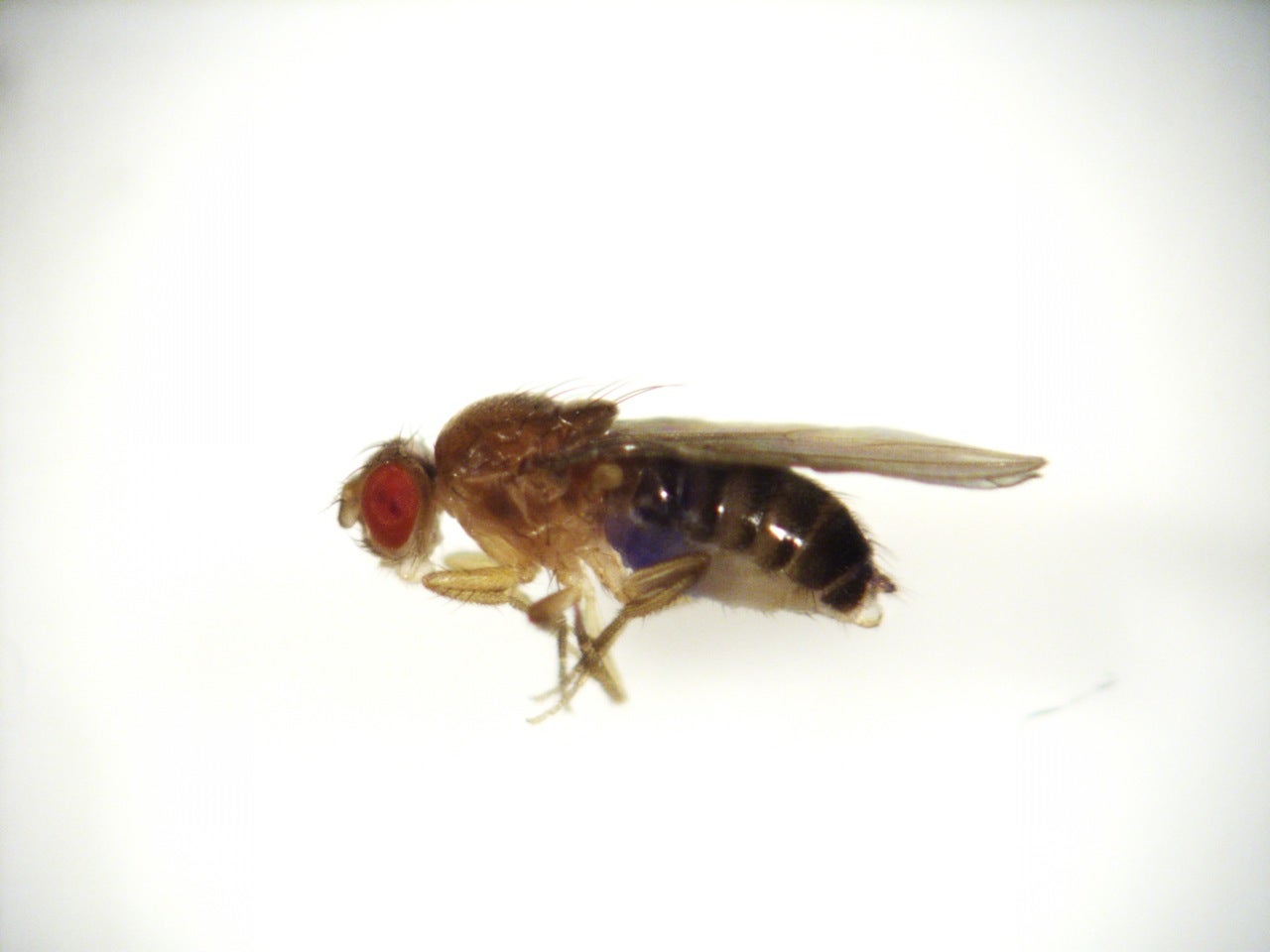Drexel father-son team finds sweetener a possible pesticide

Blue dye visible in the abdomen of this fruit fly show it ate erythritol, a component of the sugar substitute Truvia. (Photo courtesy of Kaitlin Baudier)
One of the newer sugar substitutes on the market is Truvia, made by the Coca-Cola Company. Scientists from Drexel University now have preliminary evidence that it could also double as a safe pesticide.
Drexel biologist Dan Marenda said he never would have started the investigation without his son, Simon Kaschock-Marenda. Published in the journal PLOS ONE, the research began with Simon’s sixth-grade science fair project.
Now in ninth grade, Simon said he got the idea to test sweeteners on flies because at the time his family was using a variety of them and he wanted to see which might be the healthiest. And he knew his dad, a neuroscientist studying fruit flies, had plenty of the insects at his disposal.
Marenda admits he thought his son’s project would result in a lot of negative data. So they were surprised to find that the flies died much faster than normal when on a diet mixed with Truvia.
“Our first reaction was to never buy Truvia again from the store,” said Simon.
Actually, Marenda said, all the evidence suggests Truvia is perfectly healthy for people to consume, even in large doses.
But the fact it kills flies could mean it might prove useful as an environmentally friendly pesticide.
Marenda has since teamed up with a Drexel entomologist Sean O’Donnell to more rigorously test his son’s findings in the lab. Graduate student Kaitlin Baudier repeated all the experiments and even isolated the active ingredient — a sugar alcohol called erythritol.
At the highest dose tested, Marenda said, the flies lasted just two days, compared to more than a month for those dining on regular sugar. Because it’s water soluble, he doesn’t envision erythritol as a replacement for crop insecticides. But it might do the trick for urban pests such as ants or cockroaches.
“For a situation where an insect would say, go to a bait, consume erythritol — or even better, take that erythritol back to its nest and consume it there — that might be something that’s very valuable,” said Marenda.
Marenda plans to test the ability of erythritol to kill other insects and would like to work with a company to develop a successful product.
As for Simon, he’s excited to be author on a scientific paper — even though he won no awards for that science fair project three years ago.
WHYY is your source for fact-based, in-depth journalism and information. As a nonprofit organization, we rely on financial support from readers like you. Please give today.

